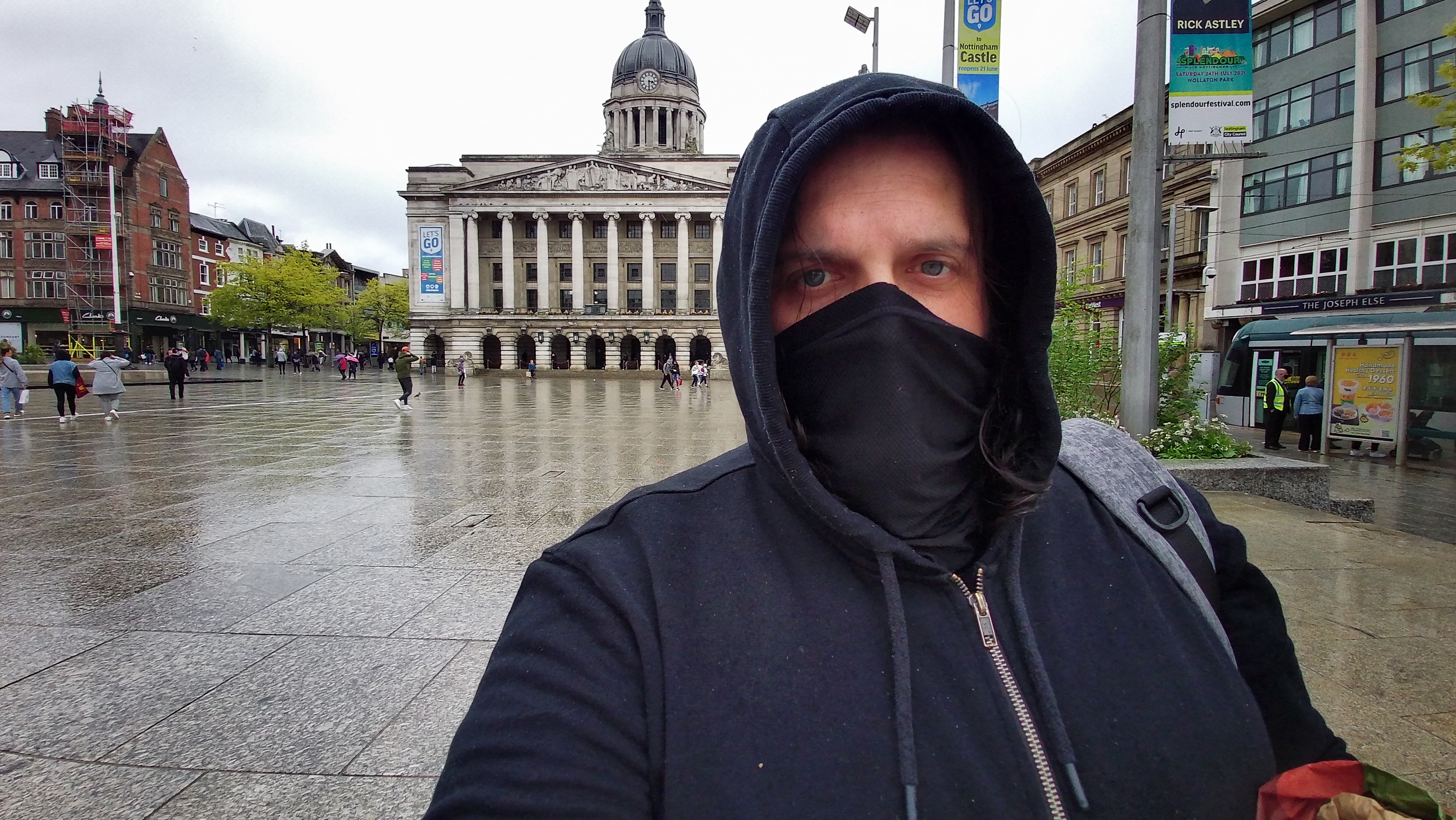
As the Lockdown restrictions come to a sort of end here in BJs Great Britain against a backdrop of Operation Fear and media frenzy circus. The medical-industrial complex ticking away to ensure greater profits. Fears of another lockdown down the line omnipresent.
Every time I wear a mask or see others wearing masks. You notice others are looking a little more intently trying to read you.
Traveling public transport and engaging with others. Observing the eyes of others looking for cues from expressions that are not present. Hidden by the mask. In children, you see them scanning for expression information as they don’t know why others faces are obscured. Eyes of visually normal people performing extra gestures, refocusing, twitching, single partial winking, extra direction looking. The mind behind the vision, trying to take in as much information from the limited input. We as human beings take in so much detail, from the wider face. Anger, disgust, fear, happiness, sadness, and surprise are pretty universal. However, how people communicate anger, disgust, fear, happiness, sadness, and surprise varies substantially across cultures, situations, and even across people within a single situation.
With these are now hidden. Only the physical gesture and audible cues are present. It’s this lack of communication that is generating levels of anxiety. When we don’t we are more cautious, more on edge and likely to act irrational. As our evolution of psychological reactions is ready to engage. It is this fear and reaction, that I want to highlight is perhaps being somewhat overlooked.
The psychological effects of masks are culturally shaped; they may include threats to autonomy, social relatedness, and competence.
“The impact of mask wearing on basic psychological needs (autonomy, relatedness, and competence) is likely a contributor to the controversy associated with wearing masks during the COVID-19 pandemic in the United States; however, future research is needed to empirically test this theoretical evidence.
Scheid JL, Lupien SP, Ford GS, West SL. Commentary: Physiological and Psychological Impact of Face Mask Usage during the COVID-19 Pandemic. Int J Environ Res Public Health. 2020 Sep 12;17(18):6655. doi: 10.3390/ijerph17186655. PMID: 32932652; PMCID: PMC7558090
–
The current commentary focused on the impact of wearing a face mask from an individual-level. It is important to acknowledge that there may be broader associations and implications of wearing a face mask not discussed. For example, there may be meso-level impacts (i.e., medium systems, such as organizational, ethnic, and community), and macro-level impacts as well (i.e., large systems, such as a national economy). To our knowledge, there is currently no research that examines face mask wearing and the impact of more meso-and macro level systems on the current COVID-19 pandemic. “
We are conditioned to identify and assess people, family, friend, associate, foe and manage them accordingly. Anyone in a mask is intentionally hiding their identity, and is thus a culpable potential enemy. Spurring our internal alert system to be engaged, ready to react. The retail and hospitality sector has rarely been faced with those without a face. For years petrol stations and shops will deny service to those wearing their helmet. The identity of the biker assessed to be someone obscured and thus likely to drive off to potentially steal, their identity even to CCTV unknown.
In this time now of covid, everyone is wearing masks, their features hidden. What effect will this have upon those in customer-facing roles? Psychological scarring, fear and panic.
Kristian
Related posts
Subscribe for newsletter
* You will receive the latest news and updates!
